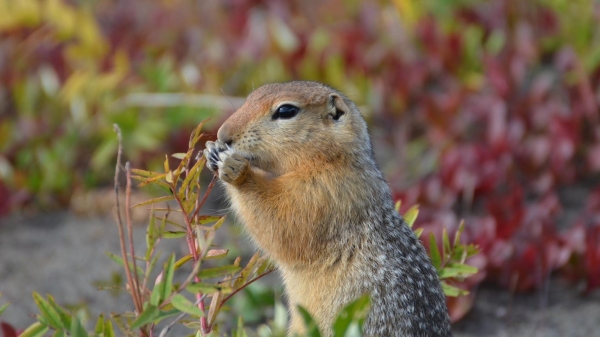Arctic ground squirrels are unique among mammals. Their ability to keep from freezing even when body temperatures dip below that mark on the thermometer enables them to survive extreme winter climates. New research published in Science analyzes more than 25 years of climate and biological data. The findings include shorter hibernation periods and differences between male and female hibernation periods. Spoiler alert – the girls “rise and shine” a little earlier in response to warming, which could have both positive and negative ripple effects throughout the food web in these ecosystems.
Senior author Cory Williams, assistant professor in the Department of Biology at Colorado State University, began studying arctic ground squirrels while at the University of Alaska Fairbanks more than 15 years ago. “I think the thing that makes our study unique is that we are looking at a long enough dataset to show the impacts of climate change on a mammal in the Arctic,” said Williams, who joined the CSU faculty in 2021. “We can show a direct link between changes in temperature and the physiology and ecology of these animals.”
Read more at Colorado State University
Image: A juvenile arctic ground squirrel foraging near Toolik Field Station in northern Alaska. (Credit: Cory Williams via Colorado State University)


